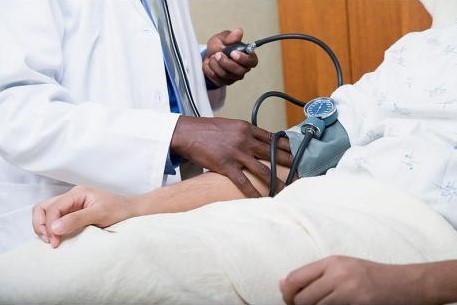Subscribe for all my updates and don't miss a thing! Sign me up!
Leading Cause Of Death In Jamaica
Non-Communicable Diseases
Sharing Is Caring! Share this awesome content with your friends now.
by Venesha Johnson | Associate Writer
The leading cause of death in Jamaica is non-communicable diseases. Here are the reasons behind this and lifestyle changes to prevent it.
New! Take a piece of Jamaica with you💃!
Savour the memories! Now you can get your authentic Jamaican souvenir items, as well as traditional Jamaican herbs, spices and housewares on our popular e-store. Click Here to learn more.
And, if you ever need a trustworthy and knowledgeable local guide, consider booking a private tour with us!
According to the World Health Organization (WHO), non-communicable diseases (NCDs) are the leading cause of premature death in the Caribbean, accounting for significantly more deaths than the global average of 70%.
In Jamaica, Trinidad & Tobago, Antigua & Barbuda, and Barbados, for example, noncommunicable diseases account for 80% of deaths, compared to the global average of 70%.
The leading NCD-related causes of mortality for women in 2021, were hypertensive illnesses, cerebrovascular diseases, and diabetes mellitus. External causes, cerebrovascular disorders, and diabetes mellitus were the top three killers of men.
The four most common risk factors for NCDs—tobacco use, physical inactivity, hazardous alcohol use, and poor diets—are the leading killers, morbidities, and disabilities in the Caribbean. NCDs share these common, modifiable behavioural risk factors.
High levels of obesity are brought on by little regard for physical activity and an imbalanced diet. Childhood obesity is two to three times more common here than the global norm.
By 2030, it is anticipated that 24% of children in Bermuda, 23% of children in the Bahamas and Dominica, and 22% of children in Barbados, Jamaica, and Saint Kitts & Nevis (ages 5 to 19) will be obese.
Stroke
The most recent data indicate that approximately 2,400 people die annually from stroke-related causes. Strokes are the main cause of mortality in Jamaica, accounting for 82 fatalities per 100,000 residents, about twice the murder rate.
The cumulative incidence of deaths from COVID-19 disease from January 2020 to December 2021 is still only half that of the number of stroke-related deaths for that period.
Why is stroke so prevalent in Jamaica?
The Jamaican population has a high prevalence of many stroke risk factors, including diabetes, hypertension, and obesity. More than 68% of stroke victims have high blood pressure, 31% have diabetes, and 27% smoke.
Nearly 40% of Jamaicans over 15 have high blood pressure, with women more likely than men to have it (36%) than men (32 per cent).
Overweight and obese individuals make up 54% of Jamaicans aged 15 or older, while childhood obesity has increased by 68% over the past seven years. Additionally, too many Jamaicans do not exercise.
What is being done about it?
A significant public-private endeavour was developed in 2020 with business Jamaica and healthcare specialists creating the Jamaica Stroke Alliance. They have made an effort to put into practice the IV thrombolysis at the University Hospital of the West Indies' acute stroke treatment procedures.
The Ministry of Health has conducted studies to identify critical challenges in dealing with stroke; the lack of stroke centres, difficulties for patients in rural areas, patchy ambulance coverage, limited CT scanning availability, cost and availability of tPa (tissue plasminogen activator), insufficient number of doctors, nurses, and other healthcare professionals with stroke-specific training, and lack of public awareness of what to do when someone is having a stroke, were some of the major issues found.
They now have several initiatives on the way to tackle these issues and the front of the package labels is one of them. Customers can exercise their right to know what is in their food through the FOPL.
They are striving to ban trans fats made industrially and to create an education campaign to promote a more health-conscious society. Additionally, they developed a school nutrition policy.
Additionally, they are nearing the completion of legislation to regulate Jamaican tobacco use, a significant stroke risk factor.
Things you can do to decrease your chances of stroke:
- You can reduce your risk of stroke by selecting nutritious meals and snacks. Ensure that you consume a lot of fresh produce and fruits. Consuming meals high in fibre and low in cholesterol, trans fats, and saturated fats can help avoid high cholesterol. Reduced sodium (salt) intake can help lower blood pressure. Your likelihood of experiencing a stroke is increased by having excessive cholesterol and blood pressure.
- Maintaining a healthy weight, lower cholesterol, and lower blood pressure are all benefits of physical activity. The surgeon general advises individuals to engage in 2 hours and 30 minutes of weekly moderate-intensity aerobic exercise, such as a brisk stroll. Every day, kids and teenagers should engage in an hour of physical activity.
- Avoid consuming excessive alcohol because it can make your blood pressure go up. Men should limit their daily alcohol intake to two drinks, while women should limit their intake to one. Smoking significantly raises your risk of having a stroke. If you smoke, stopping will reduce your risk of having a stroke.
With a few lifestyle changes, these issues can easily be reversed.
Sharing IS Caring! Please help me get the message out by sharing this article with your friends on social media (links below). Thnx ;-)
If you found this page useful, please consider subscribing to my weekly newsletter, to get even more.
It tells you each week about the new information that I have added, including new developments and great stories from lovers of Jamaica!
Return to Jamaican Health Profile from Leading Cause of Death In Jamaica
Return to My Island Jamaica Homepage from Leading Cause of Death In Jamaica
References & Sources For Leading Cause of Death In Jamaica
- Chow, D.E. (2022) NCDs are the leading cause of premature death in the Caribbean: Loop Jamaica, Loop News. Loop News. Available at: https://jamaica.loopnews.com/content/ncds-are-leading-cause-premature-death-caribbean-1 (Accessed: November 23, 2022).
- Christopher Tufton: The stroke crisis in Jamaica (2022) Commentary | Jamaica Gleaner. Available at: https://jamaica-gleaner.com/article/commentary/20220821/christopher-tufton-stroke-crisis-jamaica (Accessed: November 23, 2022).
- Jamaica weather (no date) Met Office. Available at: https://www.metoffice.gov.uk/weather/travel/holiday-weather/americas/caribbean/jamaica-weather#:~:text=Dry%20season%20 (Accessed: November 23, 2022).
- Prevent stroke: What you can do (2022) Centers for Disease Control and Prevention. Centres for Disease Control and Prevention. Available at: https://www.cdc.gov/stroke/prevention.htm (Accessed: November 23, 2022).
Leading Cause of Death in Jamaica | Written: November 23, 2022
New! Get My Latest Book👇🏿
|
You asked, I've answered! You no longer need to save for months or years, to enjoy paradise! I spilled the beans! sharing my top tips on finding cozy accommodations and secret gems, only the way a native could! Click Here to pick it up on my e-store and start saving now! |
See The Best Of Jamaica - In Videos!
|
My channel reaches over 140,000 subscribers worldwide and has leveraged over 11 million views, sharing, what I call 'The Real Jamaica'. Subscribe today and join our family of viewers. |
Read More ...
New! Experience The REAL Jamaica!
Book Your Private Tour here and experience Jamaica the way we (locals) do!
P.S. Didn't find what you were looking for?
Still need help?
Click Here to try our dependable and effective Site Search tool. It works!
Or, simply click here and here, to browse my library of over 500 questions and answers! Chances are someone already asked (and got an answer to) your question.











New! Comments
Have your say about what you just read! Leave me a comment in the box below.